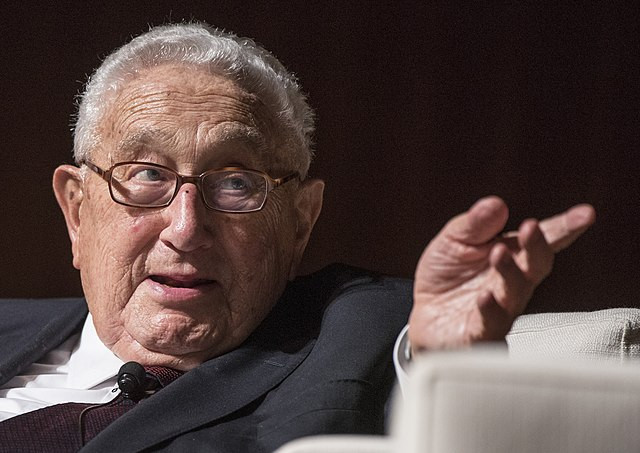Henry Kissinger, the iconic and controversial former U.S. Secretary of State and a significant architect of American foreign policy, passed away at 100. His consulting firm announced his death, which occurred at his Connecticut home, though the cause was not disclosed.
A Jewish refugee from Nazi Germany, Kissinger ascended to the highest echelons of the American political establishment, becoming an influential yet divisive figure. His tenure as Secretary of State and National Security Adviser under Presidents Richard Nixon and Gerald Ford was marked by significant diplomatic achievements and contentious policies. Kissinger's approach to international relations, rooted in the doctrine of "realpolitik," emphasized pragmatism and national interest over moral considerations.
Kissinger played a critical role in several key diplomatic endeavors, including the normalization of U.S.-China relations and the easing of Cold War tensions between the U.S. and the Soviet Union. His negotiation efforts in the Vietnam War, which eventually led to the Paris Peace Accords, earned him the Nobel Peace Prize, shared with Le Duc Tho of North Vietnam, who declined the honor. These accomplishments solidified Kissinger's reputation as a master strategist in diplomacy.
However, Kissinger's legacy is also marred by his involvement in various global conflicts and support for authoritarian regimes. He faced widespread criticism for the U.S. military escalation in Vietnam and the bombing campaigns in Cambodia. His endorsement of military juntas in Latin America and support for controversial actions in Bangladesh, East Timor, and Chile further sparked allegations of war crimes and demands for international accountability.
In academia and politics, Kissinger was both revered and reviled. His proponents hailed him as a brilliant tactician and a necessary realist in a turbulent world. Critics, however, saw him as an embodiment of the darker aspects of American foreign policy, responsible for decisions that led to immense suffering and instability in various parts of the world.
Throughout his career, Kissinger remained a significant figure in shaping U.S. foreign policy. His works on diplomacy and global strategy influenced policymakers and scholars alike. He also became a prominent public intellectual, frequently commenting on international affairs and advising subsequent administrations.
Kissinger's contributions to diplomacy and global politics were recognized through numerous awards, including the Presidential Medal of Freedom and the Medal of Liberty. However, his role in some of the most contentious foreign policy decisions of the modern era ensured that his legacy would remain a subject of debate and analysis.
His death marks the end of an era in U.S. diplomacy, leaving behind a complex legacy that encapsulates the challenges and moral dilemmas of international statecraft in the 20th century. Kissinger's life and career reflect the intricate balance of power, morality, and national interest that defines the realm of global politics.




